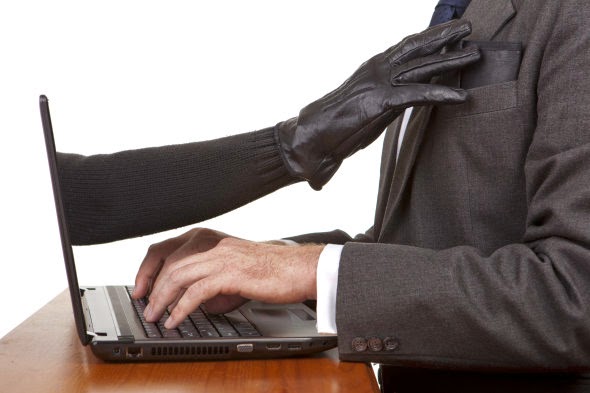The
internet is such a part of everyday life that we don't even think about it any
more. It's no more exotic and unexpected than having water coming out of the
taps. However, unlike the water coming out of our taps, the internet isn't
always pure and clear. And by using it without taking the proper precautions,
we could find ourselves becoming the victims
of online fraud.
So
how can we protect ourselves?
CIFAS,
the UK's fraud prevention service, discovered that in the last year, card fraud
and identity theft had surged - with over 125,000 separate instances. A
significant proportion of these frauds are perpetrated because people don't
take sufficient precautions
online. So what do you need to be aware of, and how can you protect
yourself?
Experian
has produced 5 top tips to stay safe online.
Beware of
phishing expeditions
These
involve emails or phone calls which come out of the blue, and persuade you to
part with your credit card details or bank account information. There are a
number of common approaches.
One
is to pretend to be from your bank or card provider, asking you to log on and
verify your identity. If you click on the link they have sent, you'll be sent
to a site run by fraudsters, who will collect the information you input and use
it to take your money. Others will use a likely-sounding story, such as telling
you you have a PPI repayment waiting or a tax rebate.
Experian
says that your best approach is to assume that all emails asking for confidential data
are scams. If you receive an email you should contact the organisation
involved to let them know about the scam - using email or phone details you
have elsewhere rather than the link on the email.
Don't be a Twit
Be
careful about what you reveal through social media. It can be easy to post photos
of valuable possessions, complain about your bank by name, boast about a
forthcoming holiday or mention pet names, your mother's maiden name or anything
else you may have used as a password. There are plenty of people out there -
including your 'friends' or people posing as them - who would use this to
access your email, infiltrate online banking, or even burgle your home while
you're away.
Be wary of wi-fi
It
might be a useful way to buy something on the hoof, or check your bank balance,
but there can be nasties hiding in public wi-fi when you're out and about - and
your every online move can be watched.
Experian
say it's worth being wary, avoid baking online on public wi-fi, and steer clear
of any sites that need a password - from banks to social networks.
Check your
statements
If
a fraudster has taken over your account, or accessed your credit card, your
statement is the first place it will show. Experian says that fraudsters are
increasingly taking smaller amounts from their victims on a regular basis
rather than a one-off hit. If you don't check your statements, it's easy to
miss this. One of the best approaches it to go through every single transaction
and only tick them off when you're absolutely sure you know what it is.









0 comments:
Post a Comment